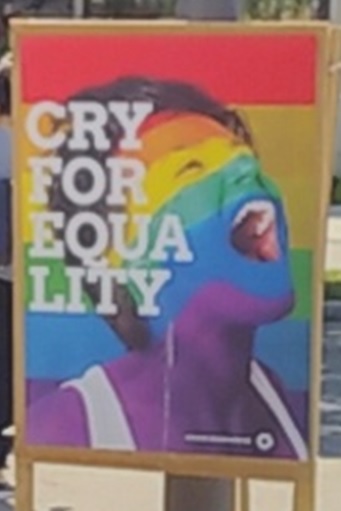June is Pride month! This links to the famous Stonewall riots which began in June 1969 in response to police brutality in New York City. London’s first pride march, 50 years ago, was chosen to be the nearest Saturday to this date. And we’re a proud bunch in the research team, with PI Peter Matthews, and Co-Is El Formby, Lee Gregory and Sam Mann being out as non-heterosexual (an odd-term, but in doing the research so-far we’ve found it easier to use this term!).

Our project is predicated on LGBT+ experiencing discrimination, either directly through being treated poorly or prevented from doing things because of who they are; or indirectly, through the design of policy that favours heterosexual or cisgender people over LGBT+ because of associated characteristics. However, the extant evidence on LGB experience of discrimination is incredibly complex. For example, there is evidence that lesbians earn more than heterosexual women, even controlling for other factors that may have an impact on earnings. There is also evidence that gay men experience a “gay glass ceiling” in advancement in their careers.
In carrying out our research, we will be rigorous in data collection and analysis. A criticism of research in this area is that it is often carried out by advocacy organisations, and that such research emphasises negative experiences to support activities by such organisations. We want to engage with the broad complexity of LGBT+ lives in this research and bring out positives as well as negatives.
This notwithstanding, early findings are suggesting that some LGB people are disadvantaged while accessing welfare benefits and accumulating assets/debts over their life course. As we indicated in an earlier post lesbians do seem to have less housing wealth, compounding lower home ownership rates. Further analysis we have done suggests this may be solely down to sexual identity, not other observable characteristics.
In the qualitative research we are hearing heartbreaking stories of the grinding poverty on life on welfare benefits. We are also beginning to unpack how these experiences have a specific LGBT+ element. For these discussions in the project team, we are using the 1990s concept of “social exclusion” along with Nancy Fraser’s work on recognition. Beyond the distress caused by financial hardship then, we are hearing stories of people having to up-end their lives and move away from communities that mean a lot to them, for example moving to Scotland to access more generous welfare support, or moving back to a small hometown from London to live with parents as welfare benefit levels make life in London unaffordable. As we reported on before, low income makes life particularly challenging for trans people.
There are also positive stories about how people are relying on the “chosen family” of friends to get by. We’ve taken to using the term “queer cushion” to describe the strength of these networks. Yet an empirical question we do not have the answer to is how protective this cushion may be; whether it is sufficient to make up for the impacts of discrimination or exclusion; and how resilient it may be during the cost-of-living crisis.
To return to the opening of the post – this is why Pride still matters. LGBT+ still experience discrimination, particularly the vicious attacks on trans people in our media and society, and the erasure of bisexuals in our society by heterosexuals and homosexuals. The ability of LGBT+ to have sufficient financial security to mitigate against discrimination is an under-researched area, and the role of welfare states and personal assets in mediating in this has barely been explored. This is the key gap our research project will be filling.
Do get in contact if you would like to participate in the research – details here.